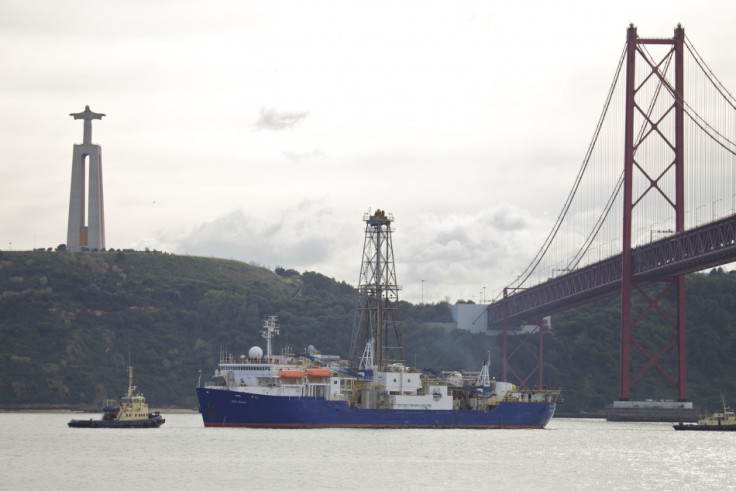Mediterranean Sediments ‘Could Offer Oil, Climate Tips’

Sediment deposits left behind by powerful Mediterranean undercurrents could offer fresh, significant insights into global climate change and even useful indications about unexplored oil and gas fields, experts have said.
A team of 35 scientists from 14 countries, who explored the southwest coast of Iberia and the nearby Gulf of Cadiz on board the vessel "JOIDES Resolution", gathered core samples of sediments that may contain a detailed record of the Mediterranean's history.
The cores, most of which are known as "contourite" as the currents that deposit it closely follow the contours of the ocean basin, could also provide significant, advanced knowledge on the opening and closing of ocean circulation gateways. The experts, who formed part of the project called "Integrated Ocean Drilling Program (IODP) Expedition 339: Mediterranean Outflow", became the first to retrieve sediment cores from deep below the ocean bed in the Mediterranean.
"We now have a much greater insight into the distinctive character of contourites, and have validated beyond doubt the existing paradigm for this type of sedimentation," said Dorrik Stow of Heriot-Watt University who was part of the team of experts.
Scientists believe that the cores could contain a solid record of climate change and tectonic activity over the past 5.3 million years. "The oceans and climate are inextricably linked. It seems there is an irrepressible signal of this nexus in contourite sediments," said Javier Hernandez-Molina of the University of Vigo in Spain, co-chief scientist for Expedition 339.
"Cracking the climate code will be more difficult for contourites because they receive a mixed assortment of sediment from varying sources," Hernandez-Molina added.
Oceans are characterised by large, powerful currents at various depths beneath the surface. The currents form a global conveyor belt that transfers heat energy and helps buffer Earth's climate.
"The recovery of nearly four kilometres of contourite sediments deposited from deep underwater currents presents a superb opportunity to understand water flow from the Mediterranean Sea to the Atlantic Ocean. Knowledge of this water flow is important for understanding Earth's climate history in the last five million years," said Jamie Allan, programme director at the National Science Foundation which co-funds IODP.
The expedition also found evidence for what is called a "tectonic pulse" at the junction between the African and European tectonic plates, which could have led to strong earthquakes and tsunamis that dumped large flows of debris and sand into the ocean bed.
The experts said that the data generated from the contourite sediments could hold the key to new oil and gas fields. "The thickness, extent and properties of these sands make them an ideal target in places where they are buried deeply enough to allow for the trapping of hydrocarbons," Stow said.
© Copyright IBTimes 2025. All rights reserved.





















